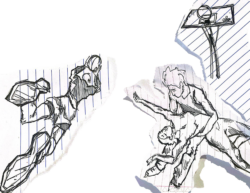“Gooooooooaaaaaaallllll!” blares over the speakers, echoing throughout the airport terminal. Everybody freezes for a single moment to listen to the announcement and then erupts in a wild flurry of overzealous curses or cries of happiness. This is the world of “fútbol.” All throughout Europe and Latin America, fans go crazy for their team, with vendors selling mock jerseys on street corners, painting the streets in the team’s colors.
But in the U.S., “football” means something entirely different. We associate this term with tailgating, burly men in helmets, unbelievable touchdowns, and fan bases that can literally rattle the foundations of a stadium. It’s no secret that what we call soccer has not yet fully resonated within the American sporting pantheon. Although a world leader economically, the U.S. seems to be falling behind in this particular trend. What about soccer do we just not get?
At its inception, fútbol was largely a bourgeois activity, but quickly spread and grew in popularity among the lower classes. The sport, supposedly (Italians will tell you otherwise), began in England. Two towns would pit their teams against one another, cheering on their neighbors and heckling their competitors. For the most part, they’ve never stopped cheering or heckling. Town teams that began play 100 years ago can still be seen competing in all tiers of English competition.
That sort of tradition never had the chance to truly develop Stateside, as the colonies were more than happy to skip out on the sport. British custom had no place in their new country.
However, as the decades wore on and technology brought the world closer together, soccer inevitably wormed its way into American sporting society. By that point other sports like basketball and baseball had secured the attention of lower-class athletes, and soccer was left to the more privileged masses. Blue-collar Americans saw the sport as too European and rejected it outright.
Thanks to a slow shift in cultural focus away from the Americana of the 20th century, though, soccer has gained a foothold. However, that didn’t stop the whole planet from drawing a shocked breath when the U.S. hosted the 1994 World Cup. As a part of the deal with FIFA, America had to start its own professional league, which, while great for the development of the sport, left its conception feeling canned and artificial.
Conversely, almost every American sports fan feels a connection to gridiron action. The sporting narratives are something we’ve grown up witnessing, or at least hearing about. Even if you’re not necessarily a fan of the sport itself, its cultural influence is nearly inescapable. Socioeconomically, the sport is for every American. Everyone in this country has a connection to the ol’ pigskin.
This cultural dichotomy has led each sports’ respective professional league in different directions. Because fútbol isn’t taken as seriously in the U.S., professional players treat Major League Soccer as a transitional stage in their careers. The types of players that are attracted to the MLS are not the top-tier athletes within the professional world of fútbol. In contrast, NFL has no reasonable comparison considering the U.S. is the only country where football is a staple in its sporting culture.
From a monetary standpoint, the MLS lacks the funds to be in competition with the NFL. For both sports, each team is allotted a team salary cap and a maximum number of players. The MLS has a maximum of 30 players, with a team cap of $3.1 million. Meanwhile, the NFL is allowed 57 players and a team cap of $133 million. The average salary for an MLS soccer player is about $141,903, while NFL players have an average salary of $1.9 million. Soccer players simply don’t want to stick around if they think they can get a better deal, and that lack of talent makes for less than pleasurable viewing.
Although a transformed version of British rugby, football has grown and developed as an American sport. Perhaps globalization will bring in fútbol as a premier sport, but with the violent tackles, the inspirational catches, and the loyal fanbases, football has evolved into more than a profession and an industry. Football has become a cornerstone of American culture, while fútbol remains on the margins of our sports-centric society.




